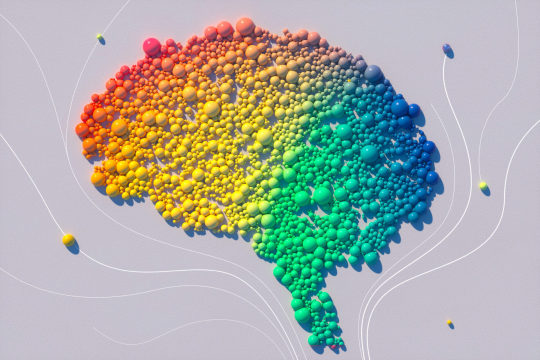Important! Your Pet's RFID Chip Number Might Have Been Disconnected This Week.
Important! Your pet's RFID chip number might have been disconnected this week.

Is your pet chipped? They should be. Do you know who made the chip?
Pet RFID chips are so small that there's really only room on them for a serial number. When your lost pet is brought to a shelter or a vet's office, they can scan the chip, read that number, and then type it into a program that draws from a series of linked databases to find your name and phone number. That's how they find you, and tell you that Silly Lilly von Wigglesbottom has gone wandering, and she's safe and sound, and would you come get her, please?
Texas-based Save This Life, which provided chips to vets and shelters all across the US, has all at once and abruptly gone dark; their database is just gone. Their customers were not given warning and so did not know to change their registration to another company. A lot of animals have basically become anonymous now.
If you don't know what company you've been using, call your vet's office and ask what pet chip number they have on file. If the chip number starts with 991 or 900164, it's probably a Safe This Life chip.
If it turns out yours is one of the affected cases, the chip itself will still be fine! There's no need to add another, or anything like that. You'll just need to transfer the number to another company, and your vet should be able to recommend the one that they like the best.
More Posts from Dangerous-button and Others
“It is said that, during the fantasy book in the late eighties, publishers would maybe get a box containing two or three runic alphabets, four maps of the major areas covered by the sweep of the narrative, a pronunciation guide to the names of the main characters and, at the bottom of the box, the manuscript. Please… there is no need to go that far. There is a term that readers have been known to apply to fantasy that is sometimes an unquestioning echo of better work gone before, with a static society, conveniently ugly ‘bad’ races, magic that works like electricity and horses that work like cars. It’s EFP, or Extruded Fantasy Product. It can be recognized by the fact that you can’t tell it apart form all the other EFP. Do not write it, and try not to read it. Read widely outside the genre. Read about the Old West (a fantasy in itself) or Georgian London or how Nelson’s navy was victualled or the history of alchemy or clock-making or the mail coach system. Read with the mindset of a carpenter looking at trees. Apply logic in places where it wasn’t intended to exist. If assured that the Queen of the Fairies has a necklace made of broken promises, ask yourself what it looks like. If there is magic, where does it come from? Why isn’t everyone using it? What rules will you have to give it to allow some tension in your story? How does society operate? Where does the food come from? You need to know how your world works. I can’t stress that last point enough. Fantasy works best when you take it seriously (it can also become a lot funnier, but that’s another story). Taking it seriously means that there must be rules. If anything can happen, then there is no real suspense. You are allowed to make pigs fly, but you must take into account the depredations on the local bird life and the need for people in heavily over-flown areas to carry stout umbrellas at all times. Joking aside, that sort of thinking is the motor that has kept the Discworld series moving for twenty-two years.”
— “Notes from a Successful Fantasy Author: Keep It Real” (2007), Terry Pratchett. (via the-library-and-step-on-it)


US Helplines:
Depression Hotline: 1-630-482-9696
Suicide Hotline: 1-800-784-8433
LifeLine: 1-800-273-8255
Trevor Project: 1-866-488-7386
Sexuality Support: 1-800-246-7743
Eating Disorders Hotline: 1-847-831-3438
Rape and Sexual Assault: 1-800-656-4673
Grief Support: 1-650-321-5272
Runaway: 1-800-843-5200, 1-800-843-5678, 1-800-621-4000
Exhale: After Abortion Hotline/Pro-Voice: 1-866-4394253
Child Abuse: 1-800-422-4453
UK Helplines:
Samaritans (for any problem): 08457909090 e-mail jo@samaritans.org
Childline (for anyone under 18 with any problem): 08001111
Mind infoline (mental health information): 0300 123 3393 e-mail: info@mind.org.uk
Mind legal advice (for people who need mental-health related legal advice): 0300 466 6463 legal@mind.org.uk
b-eat eating disorder support: 0845 634 14 14 (only open Mon-Fri 10.30am-8.30pm and Saturday 1pm-4.30pm) e-mail: help@b-eat.co.uk
b-eat youthline (for under 25’s with eating disorders): 08456347650 (open Mon-Fri 4.30pm - 8.30pm, Saturday 1pm-4.30pm)
Cruse Bereavement Care: 08444779400 e-mail: helpline@cruse.org.uk
Frank (information and advice on drugs): 0800776600
Drinkline: 0800 9178282
Rape Crisis England & Wales: 0808 802 9999 1(open 2 - 2.30pm 7 - 9.30pm) e-mail info@rapecrisis.org.uk
Rape Crisis Scotland: 08088 01 03 02 every day, 6pm to midnight
India Self Harm Hotline: 00 08001006614
India Suicide Helpline: 022-27546669
Kids Help Phone (Canada): 1-800-668-6868
FREE 24/7 suicide hotlines:
Argentina: 54-0223-493-0430
Australia: 13-11-14
Austria: 01-713-3374
Barbados: 429-9999
Belgium: 106
Botswana: 391-1270
Brazil: 21-233-9191
China: 852-2382-0000
(Hong Kong: 2389-2222)
Costa Rica: 606-253-5439
Croatia: 01-4833-888
Cyprus: 357-77-77-72-67
Czech Republic: 222-580-697, 476-701-908
Denmark: 70-201-201
Egypt: 762-1602
Estonia: 6-558-088
Finland: 040-5032199
France: 01-45-39-4000
Germany: 0800-181-0721
Greece: 1018
Guatemala: 502-234-1239
Holland: 0900-0767
Honduras: 504-237-3623
Hungary: 06-80-820-111
Iceland: 44-0-8457-90-90-90
Israel: 09-8892333
Italy: 06-705-4444
Japan: 3-5286-9090
Latvia: 6722-2922, 2772-2292
Malaysia: 03-756-8144
(Singapore: 1-800-221-4444)
Mexico: 525-510-2550
Netherlands: 0900-0767
New Zealand: 4-473-9739
New Guinea: 675-326-0011
Nicaragua: 505-268-6171
Norway: 47-815-33-300
Philippines: 02-896-9191
Poland: 52-70-000
Portugal: 239-72-10-10
Russia: 8-20-222-82-10
Spain: 91-459-00-50
South Africa: 0861-322-322
South Korea: 2-715-8600
Sweden: 031-711-2400
Switzerland: 143
Taiwan: 0800-788-995
Thailand: 02-249-9977
Trinidad and Tobago: 868-645-2800
Ukraine: 0487-327715
(Source)
By the way, you can improve your executive function. You can literally build it like a muscle.
Yes, even if you're neurodivergent. I don't have ADHD, but it is allegedly a thing with ADHD as well. And I am autistic, and after a bunch of nerve damage (severe enough that I was basically housebound for 6 months), I had to completely rebuild my ability to get my brain to Do Things from what felt like nearly scratch.
This is specifically from ADDitude magazine, so written specifically for ADHD (and while focused in large part on kids, also definitely includes adults and adult activities):

Here's a link on this for autism (though as an editor wow did that title need an editor lol):

Resources on this aren't great because they're mainly aimed at neurotypical therapists or parents of neurdivergent children. There's worksheets you can do that help a lot too or thought work you can do to sort of build the neuro-infrastructure for tasks.
But a lot of the stuff is just like. fun. Pulling from both the first article and my own experience:
Play games or video games where you have to make a lot of decisions. Literally go make a ton of picrews or do online dress-up dolls if you like. It helped me.
Art, especially forms of art that require patience, planning ahead, or in contrast improvisation
Listening to longform storytelling without visuals, e.g. just listening regularly to audiobooks or narrative podcasts, etc.
Meditation
Martial arts
Sports in general
Board games like chess or Catan (I actually found a big list of what board games are good for building what executive functioning skills here)
Woodworking
Cooking
If you're bad at time management play games or video games with a bunch of timers
Things can be easier. You might always have a disability around this (I certainly always will), but it can be easier. You do not have to be this stuck forever.
This just got posted to a Discord I'm on & my first thought was, "ah yes, for @elodieunderglass."

Vivaldi played by the South African elementary school Goede Hoop Marimba Band
Turn ON the sound
for like a decade I kept getting the advice of "don't ruminate" but also "sit with your emotions" and I was like What The Fuck Does That Even Mean. until someone finally explained it in a way that makes sense:
so there's the emotional part of your brain ("I'm embarrased") and then there's the storytelling part ("all my friends hate me and I'm a piece of shit"). when people say "don't ruminate" what they mean is don't feed the storytelling part
you tend to the emotion ("I'm feeling x. why am I feeling that? how do I move forward given that information? what's something nice I can do for myself right now to cope with this?") but you treat the storytelling part like a little goblin that's trying to be as unhelpful to this whole process as possible. this doesn't shut the storytelling goblin up completely, but it keeps it from causing so much chaos and over time it stops talking so damn much
it's basically like if you were trying to comfort a friend. you'd validate their emotions, but you wouldn't sit there and let them call themself a piece of shit. do that for yourself
sharing this in case someone else is also like Why Didn't Someone Just Say That
Because someone is on the ball, Turner Classic is playing (among other WWII films) The Great Dictator today.
If you haven't seen it, please do. It was produced by Charlie Chaplin in the late 1930s, when it became clear that the war was going to happen, and came out in 1940 after it had started. Essentially, Chaplin realized that his famous mustache was about to be usurped forever by a fascist, and that fascist was going to kill a lot more people in the future than he had already.
It's a parody, made before the worst horrors of the Nazi regime were known to the general public, so there is discomfort here (if you've seen Disney's Der Fuhrer's Face, you'll get the idea), but the movie ends with Chaplin essentially saying "fuck it, no one else seems to be speaking out about this and I'm going to use my platform to do that."
For context, this character is a Jew who has been mistaken for the dictator (for obvious mustache-related reasons), and has been sent onstage at a rally to give a speech. Instead of trying to impersonate Hitler, he says what he really thinks. And keep in mind, Chaplin was coming out of semi-retirement for this. It was the first time most people had ever heard him speak, and this is what he said:















"The Good War on Terror" written by Christopher Hayes.
I will be producing a print 'zine of this in the coming months. Join my Monthly 'Zine Club to get the first copies automatically sent your way!
one of the hardest things to learn as a depressed former Gifted Kid™ is that half-assed is better than nothing. take the 50%, 40%, even 20% job. scrubbing your face is better than not taking a shower at all. picking up your clothes is better than never cleaning. nibbling on some bread is better than starving.
DO THINGS HALFWAY. NOW YOU’RE 100% BETTER OFF THAN YOU WERE BEFORE.
-
 silvermaddy liked this · 1 month ago
silvermaddy liked this · 1 month ago -
 riverfreakinsong liked this · 1 month ago
riverfreakinsong liked this · 1 month ago -
 scooter58 liked this · 1 month ago
scooter58 liked this · 1 month ago -
 wanderingpierrot reblogged this · 1 month ago
wanderingpierrot reblogged this · 1 month ago -
 haeithunderscore reblogged this · 1 month ago
haeithunderscore reblogged this · 1 month ago -
 chikicha liked this · 1 month ago
chikicha liked this · 1 month ago -
 seafood-smoothie reblogged this · 1 month ago
seafood-smoothie reblogged this · 1 month ago -
 inikokoru reblogged this · 1 month ago
inikokoru reblogged this · 1 month ago -
 moomosaic liked this · 1 month ago
moomosaic liked this · 1 month ago -
 aleiakalaniaikakapua liked this · 1 month ago
aleiakalaniaikakapua liked this · 1 month ago -
 serioussideblog reblogged this · 1 month ago
serioussideblog reblogged this · 1 month ago -
 themagicaltunaa liked this · 1 month ago
themagicaltunaa liked this · 1 month ago -
 owlgirl495 reblogged this · 1 month ago
owlgirl495 reblogged this · 1 month ago -
 owlgirl495 liked this · 1 month ago
owlgirl495 liked this · 1 month ago -
 they-be-queer liked this · 2 months ago
they-be-queer liked this · 2 months ago -
 number48 reblogged this · 2 months ago
number48 reblogged this · 2 months ago -
 melodymason1100 liked this · 2 months ago
melodymason1100 liked this · 2 months ago -
 a-very-funny-username liked this · 2 months ago
a-very-funny-username liked this · 2 months ago -
 queennova78 liked this · 2 months ago
queennova78 liked this · 2 months ago -
 dragonsendings liked this · 2 months ago
dragonsendings liked this · 2 months ago -
 deepwithintheabyss reblogged this · 2 months ago
deepwithintheabyss reblogged this · 2 months ago -
 deepwithintheabyss liked this · 2 months ago
deepwithintheabyss liked this · 2 months ago -
 essie-essex liked this · 2 months ago
essie-essex liked this · 2 months ago -
 candycorncannibal reblogged this · 2 months ago
candycorncannibal reblogged this · 2 months ago -
 candycorncannibal liked this · 2 months ago
candycorncannibal liked this · 2 months ago -
 natarisaru reblogged this · 2 months ago
natarisaru reblogged this · 2 months ago -
 natarisaru liked this · 2 months ago
natarisaru liked this · 2 months ago -
 queen-of-cats liked this · 2 months ago
queen-of-cats liked this · 2 months ago -
 alter-cation reblogged this · 2 months ago
alter-cation reblogged this · 2 months ago -
 alter-cation liked this · 2 months ago
alter-cation liked this · 2 months ago -
 mapeslyrup liked this · 2 months ago
mapeslyrup liked this · 2 months ago -
 fooltofancy liked this · 2 months ago
fooltofancy liked this · 2 months ago -
 bladeverbena reblogged this · 2 months ago
bladeverbena reblogged this · 2 months ago -
 lupismaris liked this · 2 months ago
lupismaris liked this · 2 months ago -
 sentimental-sil reblogged this · 2 months ago
sentimental-sil reblogged this · 2 months ago -
 solipseismic reblogged this · 2 months ago
solipseismic reblogged this · 2 months ago -
 solipseismic liked this · 2 months ago
solipseismic liked this · 2 months ago -
 umbrella-princess reblogged this · 2 months ago
umbrella-princess reblogged this · 2 months ago -
 lunar-ecl1ps3 reblogged this · 2 months ago
lunar-ecl1ps3 reblogged this · 2 months ago -
 lavellxn reblogged this · 2 months ago
lavellxn reblogged this · 2 months ago -
 the-crypdid-known-as-raye liked this · 2 months ago
the-crypdid-known-as-raye liked this · 2 months ago -
 manibolly reblogged this · 2 months ago
manibolly reblogged this · 2 months ago -
 manibolly liked this · 2 months ago
manibolly liked this · 2 months ago -
 as21-7 reblogged this · 2 months ago
as21-7 reblogged this · 2 months ago -
 sifrain reblogged this · 2 months ago
sifrain reblogged this · 2 months ago -
 wagpastie liked this · 2 months ago
wagpastie liked this · 2 months ago -
 nqqn reblogged this · 2 months ago
nqqn reblogged this · 2 months ago
